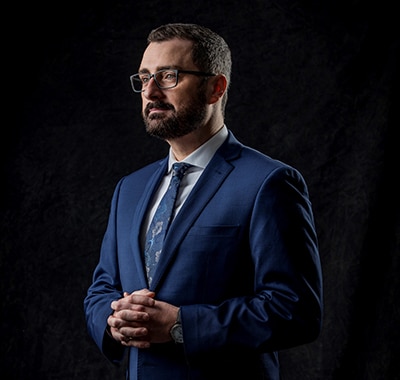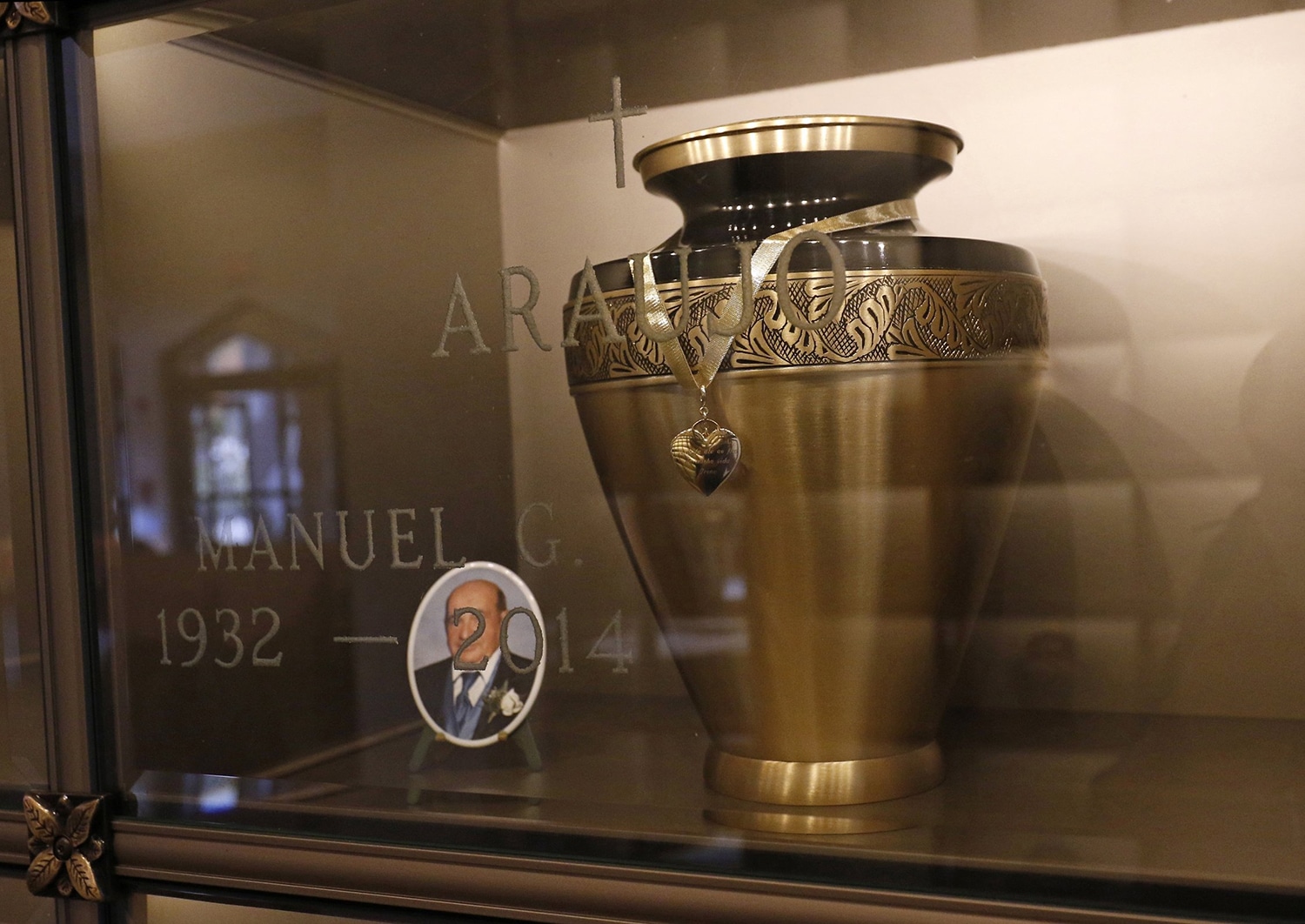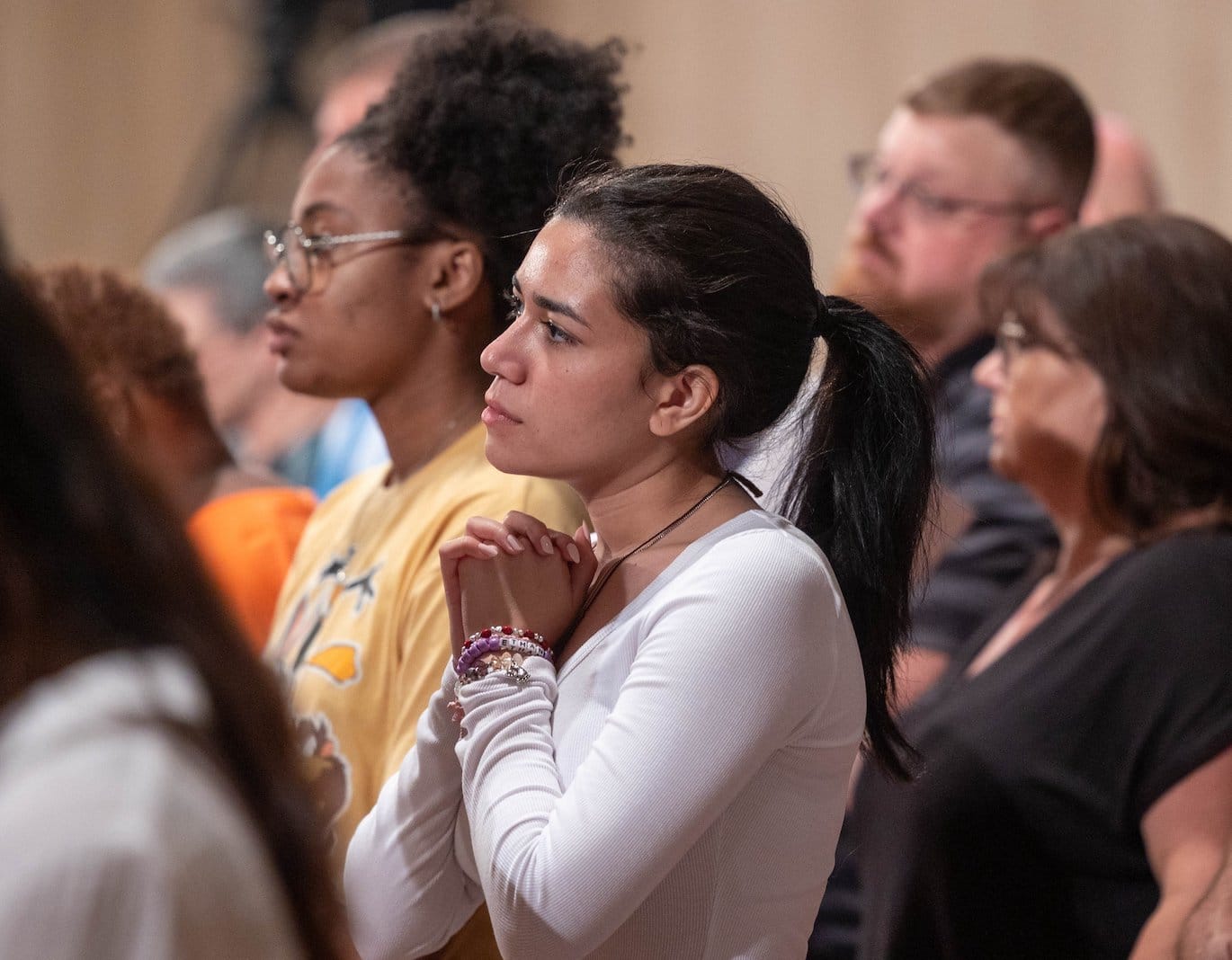Daniel R. Catone is open about his life’s mission: bringing the Faith into finance so that Catholics can invest without compromising their consciences.
“I consistently run through in my mind this idea that one day we will close our eyes for the last time and we will reopen them and we will be with Our Lord,” the 44-year-old founder and president of Arimathea, a registered investment adviser, told Our Sunday Visitor. “We need to be able to look him honestly in the eyes and tell him with love that we served him in our life.”

Catone, an award-winning financial advisor with more than 20 years of experience, began Arimathea in 2023. Arimathea, based on guidelines from its partner, Altum Faithful Investing, a Catholic investment research company, offers faith-driven portfolios for investors guided by four principles: human dignity, family, human life and creation. It promises to provide investment screening rooted in Christian beliefs that includes in-depth research into companies.
Operating out of Powell, Wyoming, where he lives with his family, Catone helps Americans invest in alignment with their faith, from bishops, diocesan chief financial officers and heads of religious orders to families and individuals.
The first step is educating investors, he said, with a special focus on human dignity. Catone revealed that he has found companies that support employee travel for abortion in every portfolio he has analyzed in the Catholic Church (which teaches that human life is sacred from the moment of conception) since Arimathea began. He also hasn’t seen one portfolio managed by a so-called Catholic asset manager that is free of contributions to Planned Parenthood, the nation’s largest abortion provider.
Through Arimathea, he hopes to change this.
His company takes its name from St. Joseph of Arimathea, who is remembered in all four gospels for burying Jesus’ crucified body in his own tomb.
“I thought, how beautiful would it be if we could construct an investment company that mirrors and mimics the generosity of St. Joseph of Arimathea?” Catone said.
Virtue investing
Arimathea centers on virtue investing, which Catone is writing a book about, for publication next year. To explain virtue investing, he cited a 1986 letter that businessman and investor Warren Buffett wrote to shareholders at his holding company, Berkshire Hathaway.
“He advocated a very simple concept, which has some use, and that is: When everyone is greedy, it’s time to be fearful. And when everyone’s fearful, it’s time to be greedy,” Catone described.
According to Buffett, when there’s fear in the market and prices drop, investors should buy and be “greedy,” rather than sell. When prices go up, they should do the opposite.
Cantone proposed a different approach: to counter fear with courage, greed with prudence.
“Rather than hopping between vices, we grow in virtue while we make good investment decisions,” he said.
An education company
First and foremost, Catone said, Arimathea is an education company that applies Church teaching to investing.
“We take the standards that are set by the Catholic Church through Catholic social teaching, primarily from the encyclicals since Rerum Novarum all the way until now — which were cultivated and kind of culminates into the 2021 USCCB [U.S. Conference of Catholic Bishops] document that was created for investment guidelines — and we marry that with Mensuram Bonam,” he said, referring to a 2022 Vatican document from the Pontifical Academy of Social Sciences about Catholic investing.
Arimathea begins by screening people’s current investments to tell them where they stand — and what exactly they own.
“Eventually we get to the asset management and the fixing part, but we have to start there, with the diagnostic,” Catone said.
‘Catholic’ asset management
Catone cautioned against using so-called Catholic asset managers because they don’t always adhere to Church standards.
“You have institutions like Morgan Stanley, for example,” he said, referring to the global financial services firm. “This is not a Catholic institution by any stretch, and yet they are able to do what they claim is Catholic asset management.”
“They use bare-bones screening systems that really let things in that should never be let in, according to the standards of the USCCB and the Catholic Church,” he said of these financial institutions.
He gave an example: The first diocese he educated, which had self-described Catholic asset managers, owned stock in Microsoft. After digging into employee policies, Catone discovered that Microsoft, as well as companies like Netflix and Tesla, were willing to reimburse their employees up to $10,000 to travel across state lines for abortions.
“This was deeply disturbing because we have actually found one of these companies, Tesla or Google or Netflix, in every single portfolio that I’ve analyzed in the Catholic Church since we started Arimathea,” he said.
He also revealed that the most commonly used screen in the United States by Catholic dioceses’ asset managers comes from a company “that permits ownership of a business, of investment in a company, that generates up to 5% of its revenue from the production of pornography.”
The word “Catholic” in finance can be misleading. The largest single fund in the United States for Catholics is an ETF (exchange-traded fund) from Global X, which is not a Catholic company, Catone said.
“It almost has a billion dollars in it,” he said. “You look at the top 10 holdings … and in those top 10 holdings, you have companies that contribute to Planned Parenthood, that pay for abortion travel or that even sell drugs through their stores or operations. Or pornography.”
A pro-life focus
While they look at several issues, Catone called the pro-life issue a priority.
“If you don’t have life, you don’t have respect for human dignity — and everything flows from that,” he said. “This is clearly outlined in the USCCB document, Mensuram Bonam and many Catholic documents.”
“It starts with human dignity,” he said, repeating that Catholics of good conscience cannot participate in anything that violates that dignity, from abortion to slave labor, child labor, the production of weapons of mass destruction, the purposeful destruction of the environment or the production and distribution of pornography.
With abortion, Arimathea looks for companies’ support of it in three ways: through the products they produce; through their advocacy, such as support for certain changes in legislation or regulation; and through employee or HR policies, including reimbursing women who travel for abortion.
“If their employee has to be away because they have to care for this newborn baby and help them grow up into a beautiful adult, well that takes away from profits,” he warned.
With their partners, Arimathea performs on-the-ground, detailed research, Catone said. They not only look at public information but also contact companies about things like travel for abortion. They also analyze charitable contributions.
“I have done many analyses for dioceses, religious organizations and families,” he said. “I have not seen a portfolio managed by a ‘Catholic’ asset manager yet that is absolutely pure of Planned Parenthood contributions. But we are.”
Good companies
Good companies exist, Catone said. At Arimathea, he said, they start by looking at a very large universe of companies — tens of thousands of companies — and then whittle it down.
“We have about 4,000 companies in the United States and in Europe, across the globe, that we can invest in with absolute confidence that they do not support abortion” in the three ways listed above, he said.
With the S&P 500, the 500 hundred largest U.S. companies listed on stock exchanges, they cut out about half of those companies, Catone added.
A faithful profit
While making money matters, Catone said that should not be Catholics’ primary consideration.
“We say, we put God first,” he said. “How do we build his kingdom like St. Joseph of Arimathea? How do we mirror his generosity?”
That said, he added that virtue investing leads to more profit, not less.
“In terms of the effect on returns [or profits] through this analysis process, we’ve been shocked to see that the returns have been better,” he said.
Catone stressed that Catholics, the largest religious population in the United States, can also use their wealth to influence the decisions of the companies they own through investing.
“One thing that the Catholic Church advocates, and of course Arimathea does, is shareholder activism,” he said. “We petition the companies, we want them to change.”
Moving forward
Catone invited people interested in faithful investing to contact financial professionals at ArimatheaInvesting.com. They are also in the process of building software, he said, that will allow U.S. Catholics to invest directly with Arimathea digitally.
While they align with Catholic Church teaching, Arimathea also serves Christians.
“If you have a conscience and you have a love for our Lord Jesus Christ and you want to make sure that his love infiltrates every aspect of your life, including your IRA [individual retirement account],” he said, “we’re the place.”







